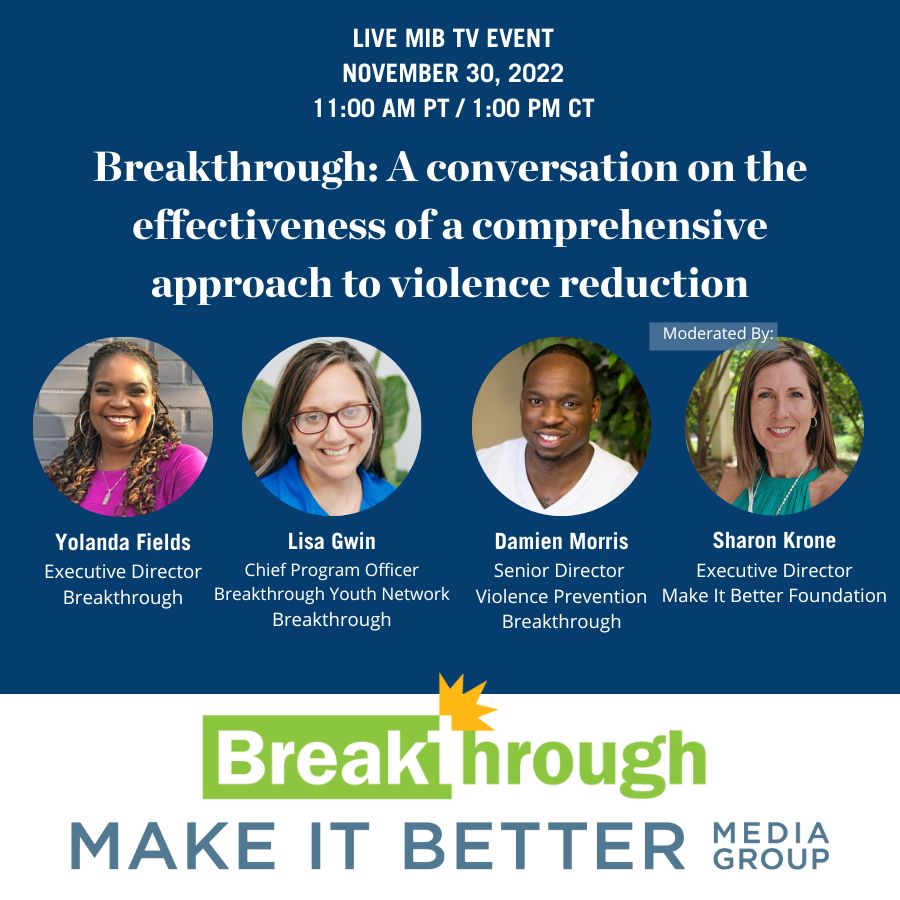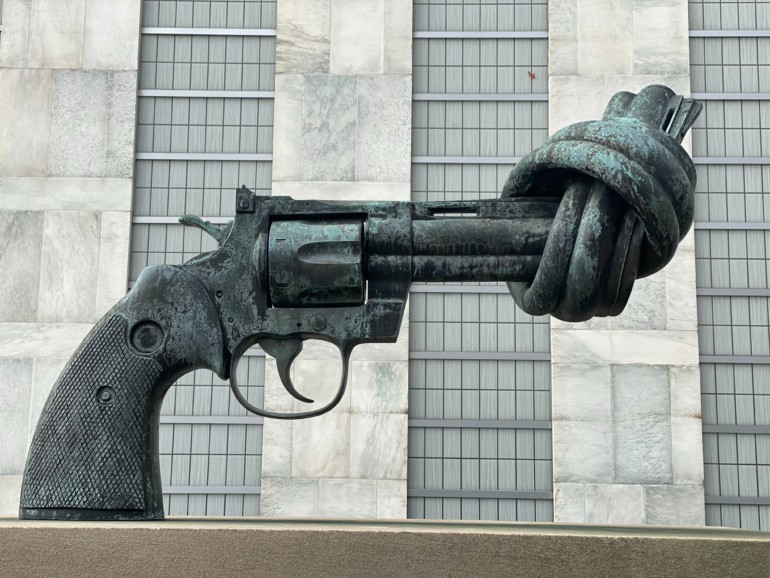Last month, Drew Lindsay, a Senior Writer at The Chronicle of Philanthropy, wrote an in-depth and data-driven piece on this movement, now termed the “gun-violence prevention movement,” and how it is achieving what couldn’t be done before.
“More than seven in 10 Americans surveyed in August— including half of Republicans — said gun laws should be stricter,” noted Lindsay. With this momentum, advocates believe they have stronger support than ever within their new decades-long shift to reframe how we tackle gun violence.
In their retooled focused, the movement’s playbook “features education and culture campaigns, lawsuits against gun dealers and manufacturers, and boycotts and petition drives to bring business into the movement, a range of work where philanthropy — long on the sidelines and often skittish about politics — can find a home,” Lindsay wrote.
This shift also includes broader messaging. Polling showed that the term “gun control”was divisive, so it is now reframed to the neutral “gun safety” or “gun-violence prevention.”
Other key elements of the movement include:
- Policy change driven by data, showing the risk of weapons and potential solutions.
- Broadening beyond Capitol Hill to focus on grassroots support and lobby for tighter gun laws in state legislatures.
- Focus on those most-impacted, and working with leaders in high-violence communities.
- Using new forms of media, like podcasts. to change attitudes and behaviors.
Major key players, in the form of funds, nonprofits, organizations and advocacy groups include:
- Brady
- Moms Demand Action
- Everytown for Gun Safety
- Giffords
- Sandy Hook Promise
- Fund for a Safer Future
- Johns Hopkins Center for Gun Violence Solutions
- National Collaborative on Gun Violence Research
- Community Justice Action Fund
- 97percent
- March for Our Lives
The gun-violence law passed this summer, after the Buffalo, N.Y. and Uvalde, TX mass shootings, reflects the movement’s evolution. Lawmakers cited a “philanthropy-funded research documenting the effectiveness of a California law that took effect in 2016,” that helped solidify the decision.
Here in Chicago, foundations have embraced anti-violence grassroot strategies as part of investments in racial equality, as they believe “gun violence is impeding their progress on education, community revitalization, work-force development, and other core areas of work,” wrote Lindsay. “A group of more than 50 Chicago foundations and philanthropists have put roughly $110 million into community-based violence interventions in the city since 2017.”
The Partnership for Safe and Peaceful Communities (PSPC) is funding “201 grassroots organizations with $1.5 million in grants from its 2022 Chicago Fund for Safe and Peaceful Communities.”
“Groups are moving away from one-day events and toward programs that provide community members with support over and above their engagement in scheduled events or activities,” stated Anna Lee, senior director of community impact for The Chicago Community Trust and co-chair of the PSPC Chicago Fund. “We’re also seeing a greater focus on social emotional learning, addressing behavioral health, and organizing communities for change.”
What does a safe & peaceful Chicago look like? What organizations are making that vision a reality?
That organization might qualify for up to $10,000 from the Fund for Safe and Peaceful Communities. Deadline is April 10. More at https://t.co/a1niJbpJFW pic.twitter.com/we99hPuPq1
— SafePeacefulChicago (@safepeacefulchi) March 27, 2019
The 2022 Chicago Fund “prioritizes 24 community areas on the South and West Sides based on data compiled by the University of Chicago Crime Lab for highest number and rate of homicides, and in alignment with State violence prevention priority areas.”
Funders include:
- Advocate Bethany Community Health Fund
- The Boeing Company
- The Chicago Community Trust
- Conant Family Foundation
- The Crown Family Philanthropies
- Emerson Collective
- John D. and Catherine T. MacArthur Foundation
- Joyce Foundation
- Lefkofsky Family Foundation
- Leva Family Foundation
- The Marc and Jeanne Malnati Family Foundation
- Mars Wrigley Foundation
- The Robert R. McCormick Foundation
- Michael Reese Health Trust
- Dan Miller Family Foundation
- Polk Bros. Foundation
- Pritzker Pucker Family Foundation
- Pritzker Traubert Family Foundation
- Steans Family Foundation
- Weinberg Foundation

On Nov. 30, join Make It Better Executive Director, Sharon Krone, for a live fireside chat with Breakthrough leaders: Yolanda Fields, Executive Director; Damien Morris, Senior Director of Violence Prevention; and Lisa Gwin, Chief Program Officer of the Breakthrough Youth Network.
Breakthrough, a Make It Better Foundation Philanthropy Award Winner, is located in Chicago’s Garfield Park neighborhood and has a comprehensive approach to violence reduction. Learn about Breakthrough’s efforts, their effectiveness, and what keeps the team hopeful during this important conversation.
Watch Better for additional expert discussion on this topic in early 2023. Other Chicago nonprofit organizations moving the needle on gun violence interruption include:
- The Young Center for Immigrant Children’s Rights
- Alternatives
- Breakthrough
- READI Chicago, a Heartland Alliance Program
- UCAN
- Institute for Nonviolence Chicago
- University of Chicago Crime Lab
- Youth Advocate Program (YAP) Inc.
- Metropolitan Family Services
- Southwest Organizing Program (SWOP)
- Enlace Chicago
- Firebird Community Arts
- Urban Gateways

